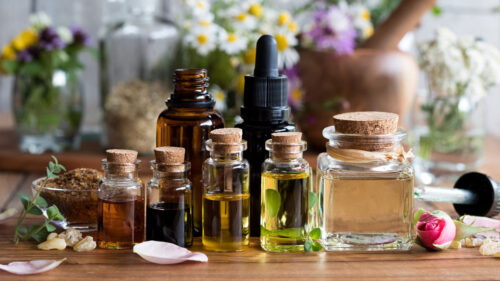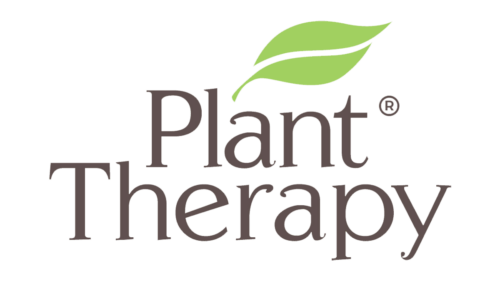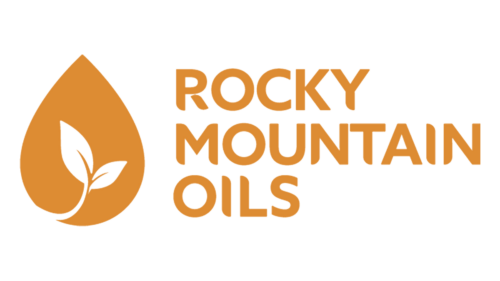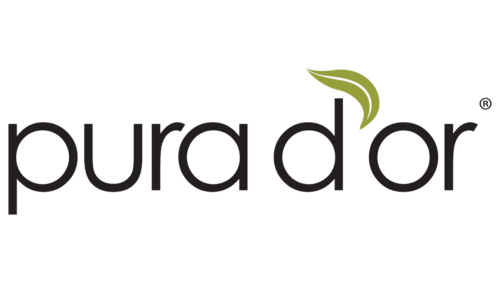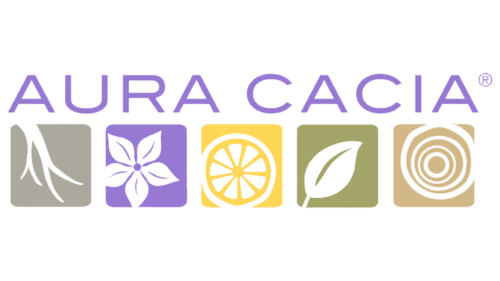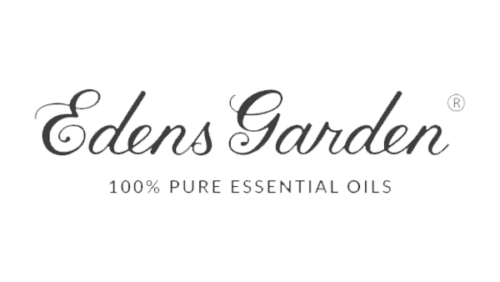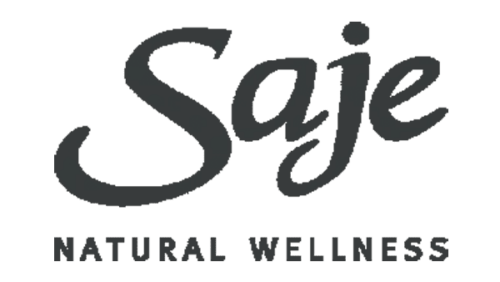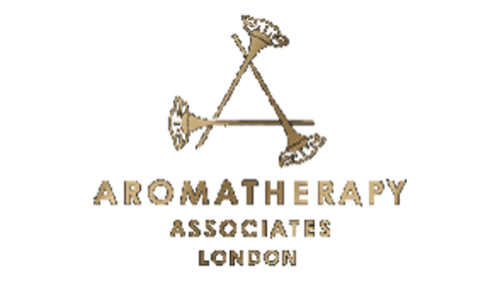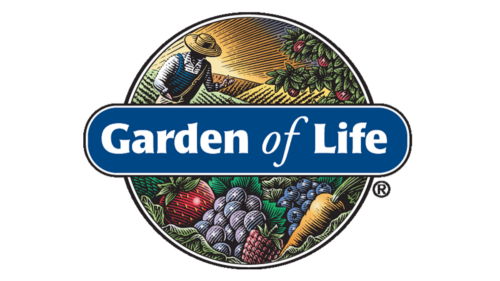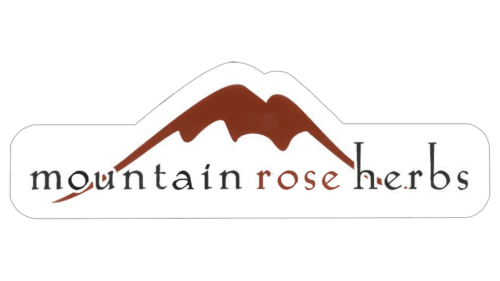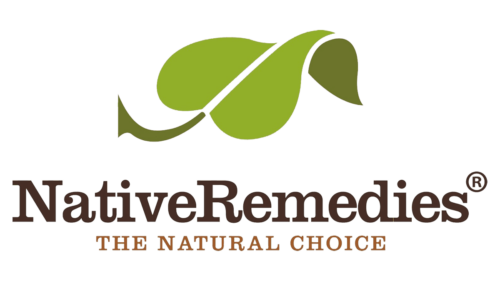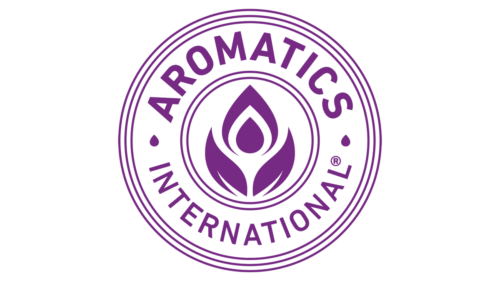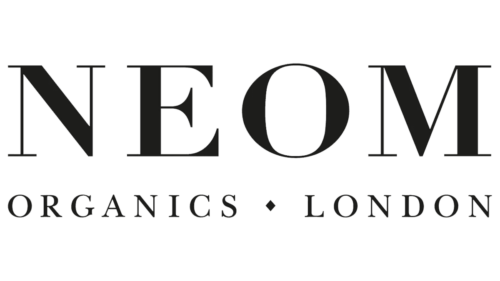As the wave of interest in holistic health practices surges, essential oils have emerged as a focal point. These aromatic plant-derived essences, captured through techniques like vapor-phase separation or cold pressing, have a broad spectrum of functionalities. Whether it’s imbuing living spaces with pleasant fragrances, serving as key elements in aromatherapy sessions, participating in individual wellness regimens, or providing various medicinal advantages, their utility is far-reaching.
To delve deeper into the myriad capabilities of these botanical elixirs, we engaged in a conversation with Jade Shutes, the guiding intellectual force and originator of The School for Aromatic Studies. Shutes elaborates, “The therapeutic scope of essential oils is incredibly wide. They can positively influence mental states, alleviate dermal irritations, fortify natural defenses, accelerate tissue repair processes, and contribute to the health of respiratory and digestive systems, among a host of other applications.” You can introduce these fragrant concentrates into your lifestyle by inhaling them, integrating them into diluted topical applications, or using specialized devices like aroma diffusers to permeate your domestic atmosphere.
Given the profusion of companies specializing in essential oils, finding the right one can be a labyrinthine task. To simplify this process, we have meticulously researched a diverse range of brands, scrutinizing them based on factors such as product assortment, ingredient integrity, verification by independent agencies, and affordability metrics.
Plant Therapy
| Pros | Cons |
|---|---|
|
|
If you’re actively searching for top-tier, budget-friendly essential oils that are free from impurities, synthetic components, or fillers, Plant Therapy is your ultimate destination. This brand provides an extensive catalog of oils that unquestionably merit your sensory investigation. Obtained from credible and well-regarded vendors, each essential oil undergoes rigorous third-party scrutiny, complete with GC/MS validation, to confirm its high standard. On the ethical front, Plant Therapy holds a Leaping Bunny certification for its cruelty-free practices, and a subset of their offerings also meet USDA organic standards. In terms of both price and quality, this brand is a standout performer.
Offering an all-encompassing range of products, Plant Therapy doesn’t just stop at essential oils. The brand curates specialized categories that are suitable for young children as well as pet-friendly options under the Pup & Pony Safe line. In addition to aromatic oil collections, they supply personal care goods, home necessities, CBD assortments, and options to purchase oils in large quantities. Operating on a direct-to-consumer paradigm, the company maintains an edge in pricing, with a selection of oils available for under $10. Moreover, their 90-day, hassle-free return policy adds an extra layer of consumer confidence.
Though a significant number of Plant Therapy’s offerings come with USDA Organic accreditation, it’s advisable to carefully inspect the label, as this is not a uniform feature across all products. Additionally, fragrance intensity varies by oil, which some consumers have noted; however, this is ultimately a matter of individual perception.
Vitruvi
| Pros | Cons |
|---|---|
|
|
Initiated by siblings Sara and Sean Panton as a wholesome substitute to conventional, toxin-loaded home aromatics, Vitruvi initiated its journey with small-batch, manually labeled essential oils. The brand has matured into a design-focused entity that ventures beyond aromatic oils, featuring humidifiers and even stylish, eco-conscious home scent solutions, such as the distinguished Vitruvi Porcelain Essential Oil Diffuser. Procured from a range of global locales, including but not limited to France and Madagascar, Vitruvi’s oils are formulated solely from authentic, natural ingredients and are devoid of diluents, artificial essences, or any synthetic add-ons.
Their packaging reflects a minimalist elegance. The cruelty-free and vegan oils are housed in bottles that protect against UV damage, labeled with plant-derived inks, and enclosed in sustainable, recyclable materials. As gift options, these oils are ideal, and can be purchased either individually or as curated blends with evocative names like Slow Dance, featuring calming earthy undertones of fir, cedarwood, and pine. Vitruvi oils can be acquired online or through select boutique retail partners like Anthropologie and Nordstrom.
It’s important to underline that Vitruvi oils are conceptualized to synergize with the brand’s own range of diffusers. While this might limit the scope for diverse aromatic applications, it doesn’t compromise the quality or purity of the oils, which remain fundamental benchmarks for any reputable essential oil manufacturer.
Rocky Mountain Oils
| Pros | Cons |
|---|---|
|
|
Frustrated by the absence of top-tier essential oils available without the requirement for a membership, Michael and Phoenix took the initiative to create Rocky Mountain Oils. The firm dispenses directly to consumers, meticulously examined and validated essential oils that are free of adulterants, housed in amber-shaded glass vessels. With an extensive lineup that encompasses individual essences, combined formulations, specialized kits, certified organic extracts, child-safe variants, and easy-to-apply roll-ons, the brand satisfies the preferences and needs of a wide array of aroma therapy enthusiasts.
Leading the charge in environmental stewardship, the company is undergoing a transformation to adopt green packaging solutions and has even inaugurated a program for recycling used bottles. As a frequent shopper, you can gain from their point-based loyalty program that extends beyond purchases to include referrals. Moreover, the brand distinguishes itself by offering a flexible 90-day return policy, effective even if you’ve opened and used the product. Explore their comprehensive roster of top-rated essences, such as invigorating lavender and sharp lemongrass, to pinpoint your go-to aroma.
Though boasting a wide array of choices, be prepared for a higher price tag. Additionally, not every offering has been endorsed with a USDA Organic certification. Nonetheless, if a broad selection, eco-friendly policies, and child-safe alternatives resonate with you, Rocky Mountain Oils merits your attention.
Pura D’or
| Pros | Cons |
|---|---|
|
|
Best known for its range of wellness products catering to skin, hair, and body, Pura D’or extends its expertise into the realm of scent therapy. Partnering with Mikki Anderson, a professional aromatherapist, the brand sources a selective collection of essential oils from small-scale, ethically managed farms and distillation facilities. These oils come with USDA Organic, Leaping Bunny, and vegan accreditations, although full quality test documentation is yet to be released.
The brand captures attention for its attractively priced, multi-bottle essential oil sets, offering you a choice of 10 or 16 vials in 10-ml sizes, which are ideal for experimenting or health enhancement.
Though Pura D’or could improve in terms of testing transparency, the presence of multiple external certifications should instill confidence in their product quality.
Aura Cacia
| Pros | Cons |
|---|---|
|
|
Frequently found gracing the shelves of big-box retailers like Target or Whole Foods, Aura Cacia has been entrenched in the industry since its 1982 inception as a worker-owned cooperative. The brand champions a triad of priorities: its workforce, agricultural collaborators, and community well-being. It also guarantees that all its oils, sourced in a sustainable manner, meet stringent purity guidelines, backed by GC/MS screening, and are void of any synthetic additives.
Their inventory is diversified, featuring an impressive spread of solo and compounded oils, many of which have earned USDA Organic certification, alongside premium grade oils. They also offer a variety of diffusion equipment, aromatic sprays, and bath and personal care items suitable for all ages. To elevate your emotional state, their Uplifting Kit is worth a look, featuring citrus-driven oils like lemon, lime, grapefruit, and sweet orange.
While the brand offers budget-friendly and extensive choices, not all are USDA Organic. Thus, if organic certification is crucial for you, ensure to scrutinize the labels carefully before committing to a purchase.
Edens Garden
| Pros | Cons |
|---|---|
|
|
Initiated by Grace Martin in 2009, Edens Garden has swiftly catapulted into prominence, selling more than 20 million bottles of curated essential oils. By forming alliances with agricultural experts and distillation hubs across the globe, the brand has amassed an extensive repertoire of over 250 unique oils and synergistic combinations suitable for both remedial and aromatic purposes. Their offerings, subjected to stringent GC/MS assessments, are reliably free from man-made additives, chemical fillers, artificial scents, or hazardous substances.
Beyond their broad spectrum of therapeutic elixirs, the brand provides a ‘design-your-own’ set option for discerning customers. Although pricing sits on the higher side compared to similar brands, Edens Garden, steered by female leadership, runs an impactful charity initiative, Seeds of Goodness. This program allocates funds to humanitarian causes like The Angel House for orphan rescue and Feeding America, a massive meal distribution endeavor aiding the less fortunate.
Saje Natural Wellness
| Pros | Cons |
|---|---|
|
|
Underpinned by an integrative, health-forward ideology, Saje curates an extensive variety of essential oils, eco-conscious home essentials, and self-care goods for skin and hair. All their essential oil offerings, validated by GC/MS analytical methods, are uncompromisingly pure, and shun parabens, SLS, color additives, fabricated fragrances, and synthetic fillers. Committed to ecological balance, much of the brand’s packaging employs recycled water bottles. Socially responsible, Saje aids philanthropic entities like The Little Market.
For essential oil newcomers, the brand offers amber-colored roll-ons filled with specialized blends like Fortify, designed to combat flu symptoms; Pain Release, focused on easing physical discomfort; and their pioneer formula, Peppermint Halo, a balanced amalgamation of peppermint, eucalyptus, rosemary, and lavender, aimed at alleviating muscle stiffness and headaches. Despite a premium pricing strategy, enthusiastic customer endorsements and the ‘clean’ attributes of these products affirm their worth for consumers keen on both well-being and sustainability.
Now Foods
| Pros | Cons |
|---|---|
|
|
Originating in the 1960s under the aegis of Elwood Richard, Now Foods has earned a venerable reputation for affordable, high-caliber nutritional goods. The brand’s sweeping inventory encompasses a variety of unadulterated essential oils—although exceptions like synthetic jasmine are clearly marked—as well as mixed and USDA-endorsed organic options.
Armed with an avant-garde in-house lab and specialized personnel, the company authenticates all external quality evaluations. Offering vegan, non-GMO, and cruelty-free options, these oils are broadly available through various retail channels, including Amazon. A downloadable Purity Specification Guide is available for the discerning customer. The company also enables savings through bulk purchasing from specialized outlets. Basic diffusers, bundled sets, and convenient roll-ons are also accessible.
It’s worth noting that not all Now Foods essential oils possess USDA Organic certification; if that’s crucial for you, ensure to double-check. Additionally, some patrons have observed that the aromatic intensity of these oils can be short-lived—either a potential downside or a boon, depending on your personal fragrance tolerance.
Aromatherapy Associates
| Pros | Cons |
|---|---|
|
|
In the 1970s, founders Geraldine Howard and Sue Beechey began their aromatic journey, deeply captivated by the essence of botanical oils. Wanting to extend this olfactory adventure to the public, they unveiled the original Aromatherapy Associates boutique in 1985. Here, expert mixologists in their London workshop formulate distinct concoctions, like the Deep Relax blend—a fusion of earthy vetiver, calming chamomile, and serene sandalwood designed to usher you into a restful sleep.
The brand is rooted in organic ethos, sourcing ingredients responsibly from unspoiled natural locales, such as lavender harvested from Alpine regions. Steering away from synthetic additives like artificial fragrances and dyes, sulfates, and parabens, the oils are also not subjected to animal testing. Demonstrating a responsible corporate footprint, Aromatherapy Associates is a certified B Corp, prioritizing ethical and environmental considerations over profit margins. Their commitment includes eco-friendly packaging solutions, community contributions, and the utilization of green energy at their main offices.
The only caveat when shopping from Aromatherapy Associates is the absence of single-note oils; they specialize solely in intricate blends. Yet, for those who appreciate the complexity of combined aromas, a diverse selection awaits.
Garden of Life
| Pros | Cons |
|---|---|
|
|
Renowned as a nutritional supplement brand, Garden of Life conscientiously aligns with sustainable business practices, boasting credentials such as B Corp and Carbon Neutrality. While their array of essential oils is limited, each product bears organic, non-GMO, and vegan certifications.
Ideal for novices, the brand offers an introductory set that assembles evergreen oils like lavender, peppermint, lemon, and tea tree. These versatile essences can be adapted for myriad uses, be it spiritual rituals, body therapies, or crafting household essentials.
doTERRA
| Pros | Cons |
|---|---|
|
|
As a heavyweight in the realm of essential oils, doTERRA markets its product line through a multi-tiered sales model and commands a higher price point for its ethically sourced, high-quality oils. The company employs its own Certified Pure Tested Grade quality assurance scheme, enhanced by external evaluations.
Offering an expansive aroma palette, doTERRA showcases exotic fragrances such as their extravagant rose oil. This luxurious essence demands the harvesting of 10,000 rose blooms for a scant 5 milliliters and bears a lofty cost of $366.67, although wholesale pricing is available. Beyond mere oils, doTERRA’s product suite spans across skincare and haircare items, nutritional supplements, aroma diffusers, and other lifestyle paraphernalia. Potential customers should be aware that a membership precondition applies for acquiring doTERRA products.
Mountain Rose Herbs
| Pros | Cons |
|---|---|
|
|
Once a small-scale herb retailer with a mail-order service, Mountain Rose Herbs has blossomed into a vast 12-acre hub located in Eugene, Oregon. The brand prides itself on offering certified essential oils, epitomizing an ethos of fair trade, organic, and non-GMO production—all in a facility committed to zero waste. It’s worth highlighting, however, that not every essential oil in their collection comes with an organic certification.
Their product range is diverse, extending well beyond essential oils to encompass teas, herbal concoctions, spices, and an array of personal care items. One of the gems in their collection is the Lovers Essential Kit, a curated selection featuring five organic oils, including exotic choices like ylang ylang and Australian sandalwood. For those inclined towards the rare and exceptional, the brand also markets luxe oils like Jasmine Absolute and Vanilla Absolute, which command a premium price due to their scarcity and quality.
It’s advisable to prepare for a longer-than-average shipping duration, particularly if your selections include hard-to-obtain oils. Additionally, shipping fees are not included in the product price. These minor points, however, scarcely overshadow the brand’s extensive offerings and dedication to environmentally friendly operations.
Revive Essential Oils
| Pros | Cons |
|---|---|
|
|
Revive offers a cost-effective, yet high-quality, alternative to higher-priced brands by selling directly to consumers via their online platform. The brand insists that their wildcrafted oils are clean, free of pesticides, and contain no synthetic fillers, supported by GC/MS tests for authenticity. The assortment of oils is vast, with offerings in various sizes and kit options.
Revive presents not just their interpretations of popular oil blends but also unique formulations for customers to explore. A convenient choice for newcomers is the starter package, encompassing 10 large bottles along with an ultrasonic diffuser. Notably, the company’s 100-day return policy is exceptionally generous, allowing even opened bottles to be returned for a full refund.
The Vitamin Shoppe
| Pros | Cons |
|---|---|
|
|
With an emphasis on holistic health and well-being, The Vitamin Shoppe recently unveiled its Vthrive line, featuring an array of essential oils. This new collection includes 14 unique oils like lavender, orange, and tea tree, all of which are uncompromisingly pure and bear the USDA organic certification.
The scent range of Vthrive is eclectic, offering fragrances such as cinnamon, acclaimed for its ability to heighten alertness and boost vitality. Product labeling is meticulous, offering clarity on the extraction techniques used—either steam or cold pressing—to ensure both quality and transparency. While the range is not as extensive as those of other sector giants like Plant Therapy or Eden’s Garden, Vthrive oils offer a strong foundation for those beginning their essential oil journey.
Native Remedies
| Pros | Cons |
|---|---|
|
|
Obtained through either cold-pressing or steam-distillation techniques, Native Remedies’ oils are devoid of artificial additives or chemicals. While they don’t promote their products as organic, they provide a comprehensive ingredient database, empowering customers to make well-informed buying decisions. Native Remedies takes a medicinal approach, offering specialized blends like “Fatigue Fighter” and “Aroma Sleep,” specifically crafted to address health issues. As always, consult a healthcare provider before incorporating essential oils into your wellness routine.
Aromatics International
| Pros | Cons |
|---|---|
|
|
A family-run business, Aromatics International rigorously tests its oils for therapeutic-grade quality. Derived from plants that are either pesticide-free, organically cultivated, or wild-harvested, the company provides ample educational resources via YouTube and online platforms for those interested in the world of aromatherapy. To preserve the integrity of the oils, each bottle is sealed with nitrogen gas, inhibiting oxidation and extending shelf life. Founded with an emphasis on community building and education, the company remains committed to these core values as it continues to grow.
NEOM Organics
| Pros | Cons |
|---|---|
|
|
Specializing in mood-enhancing fragrances, UK-based NEOM Organics ships its products readily to the United States. The brand emphasizes “clean” over “organic” or “natural,” and is committed to full transparency in disclosing all ingredients and sustainable practices. With a stylish aesthetic and a focus on mood improvement, ScentSation offers a wide range of essential oil blends crafted for various purposes such as relaxation, energy boost, and improved sleep. Their user-friendly website not only educates but also aligns with the brand’s commitment to environmental responsibility and quality.
Criteria for Selecting a Reputable Essential Oil Brand
When you’re on the hunt for high-quality essential oils, the absence of industry-wide standards makes it crucial to weigh a multitude of factors, notes Jade Shutes, the originator and chief educational officer at The School for Aromatic Studies. Key elements to scrutinize include the botanical name—both common and scientific—stated on the label, the documented extraction method, the plant part from which the oil is sourced (be it flower, leaf, stem, root, or fruit), the tint of the bottle (opt for amber, blue, or green), and the brand’s dedication to environmental sustainability, as well as its overall credibility.
Ingredient Composition
Your investigation for superior essential oils can start effectively by perusing the ingredient list on any particular bottle. Either focus on the ingredients deployed by select brands or delve deeper into a single product’s composition. This is essential because it enables you to identify the exact constituents of the oil. Premium essential oils, often priced on the higher end, contain nothing but the essential oil. However, be wary of undisclosed additives, diluents, or aqueous solutions. For the purest options, seek brands that are completely transparent about their ingredient lineup in each oil container.
Batch-Specific Analytical Testing
“Conducting Gas Chromatography/Mass Spectrometry (GC/MS) tests for each batch is indispensable for verifying an essential oil’s purity and ensuring it hasn’t been tampered with,” emphasizes Marge Clark, the founder of Nature’s Gift Aromatherapy and the author of “Essential Oils and Aromatics.” Comprehensive and impartial third-party GC/MS assessments dissect the chemical makeup of essential oil, offering you a precise understanding of the constituents in different oils or blends. Hence, always keep an eye out for these test results to make a well-informed purchasing choice.
Quality Assurance through Certifications
Third-party certifications can provide supplementary data on the integrity of essential oil brands. For instance, a USDA organic seal signifies that the product is predominantly composed of organic elements and is devoid of synthetic fertilizers and pesticides. Look also for certifications such as PETA’s Vegan & Cruelty Free or Leaping Bunny’s Cruelty Free labels. Another noteworthy certification is Non-GMO, assuring you that the product is free from genetically modified ingredients.
Olfactory Preferences
The aroma of an essential oil is far from a trivial aspect—it’s a pivotal factor that can either enhance or diminish your experience. Aim to select oils that exude fragrances that are pleasing to your olfactory senses. However, the process isn’t as straightforward as picking a familiar, favored scent. Essential oils can be synergistically combined, either within the same bottle or in a diffuser, to create a uniquely tailored aroma. To explore scent combinations that are harmonious, consider starting with essential oil kits or pre-assembled blends as a creative launching pad.
Top essential oil brands
- Plant Therapy
- Vitruvi
- Rocky Mountain Oils
- Pura D’or
- Aura Cacia
- Edens Garden
- Saje Natural Wellness
- Now Foods
- Aromatherapy Associates
- Garden of Life
- doTERRA
- Mountain Rose Herbs
- Revive Essential Oils
- The Vitamin Shoppe
- Native Remedies
- Aromatics International
- NEOM Organics
COMMONLY POSED INQUIRIES
What are the best essential oil brands?
Several essential oil brands are renowned for their purity and quality. Brands like doTERRA, Young Living, and Plant Therapy are frequently recommended for their rigorous testing standards and commitment to delivering high-quality, pure essential oils to consumers. Always research and choose brands that prioritize transparency and quality assurance.
What are good essential oil brands?
When looking for quality essential oils, it’s important to consider factors like purity, testing, and sourcing. Brands like doTERRA and Young Living have a reputation for high-quality, pure essential oils and offer a variety of options. Plant Therapy is another reliable brand that provides third-party testing for their oils. Always make sure to read reviews and do your own research to determine the best brand for your needs.


